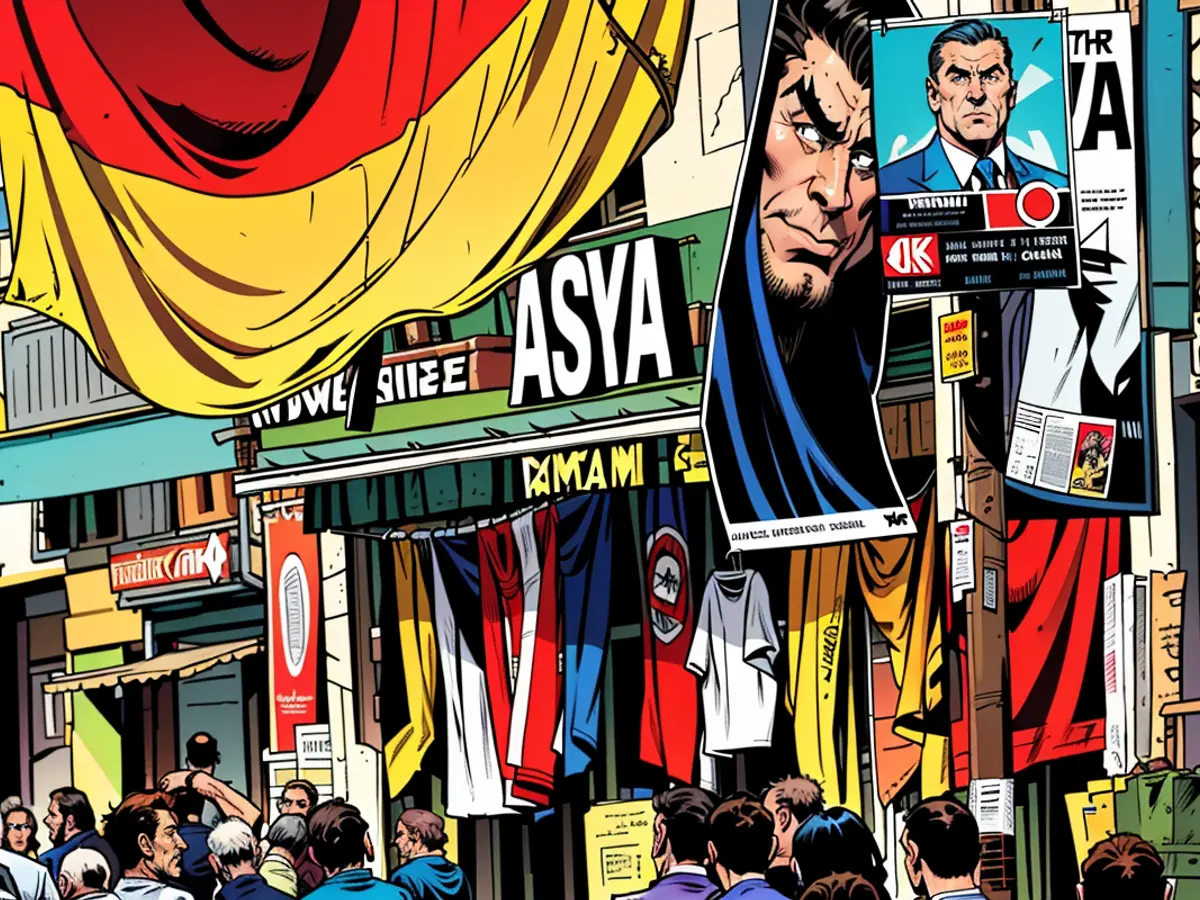Series of murders by NSU [ Or: Murder spree executed by National Socialist Underground group. [ - Steinmeier visits Cologne's Keupstraße two decades after the incident.
Twenty years ago, a heinous act by the notorious "National Socialist Underground (NSU)" unfolded in Cologne's Keupstraße. Federal President Frank-Walter Steinmeier made his way to the area where an event known as "Birlikte - Zusammenstehen" is held. This event commemorates the devastating effects of that heartless attack. During his visit, Steinmeier engaged in a conversation with the two barbers, Hasan and Özcan Yildirim, who were unfortunate enough to have their salon neighbored by a parked bicycle laden with a nail bomb. The horrific bomb detonated on June 9, 2004, leaving 22 people injured, some of whom suffered severely.
For seven long years, the Turkish community was under investigation by the police, despite it being later discovered that the perpetrators were none other than the right-wing terrorists Uwe Mundlos and Uwe Böhnhardt from the NSU.
North Rhine-Westphalia's Minister President, Hendrik Wüst (CDU), who once failed to prevent that appalling attack, expressed remorse for the way the victims were treated in those years afterward. At the event marking the 20th anniversary of the horrific incident, Wüst acknowledged, "I'm deeply ashamed about what happened back then." He further expressed his belief that it's a government's topmost duty to safeguard its citizens. Wüst failed to protect these individuals from this horrendous crime and later, to make matters worse, the police wrongly accused them of perpetrating the crime. "To those who have been doubted for so long and had investigators pointing fingers at them, even though they were victims themselves, I apologize," stated Wüst.
Unfortunately, the commemoration got delayed due to a security check that lasted more than an hour. The police brought out a bomb-sniffing dog who alerted to a hydrant in the area. This caused the area to be closed off, but thankfully, no suspicious items were found. The event was attended by many prominent figures such as the North Rhine-Westphalia's Minister President, the Mayor of Cologne, Henriette Reker (non-partisan), and the Federal Health Minister, Karl Lauterbach (SPD), whose constituency the Keupstraße falls under.
The NSU had been escalating their spree of crimes since 2000. They killed ten people in Germany - nine of them were Turkish and Greek business owners, along with one policewoman. Mundlos, Böhnhardt, and Beate Zschäpe were the terrorists behind these inhumane acts, and Zschäpe was later given life imprisonment by the Munich Regional Court in 2018.
Read also:
- The NSU's horrific crime in Keupstraße, Cologne, is a grim chapter in Germany's recent History, reminiscent of extremist acts.
- Frank-Walter Steinmeier, the German President, visited the site two decades after the nail bomb incident, symbolizing the nation's commitment to healing and remembrance.
- The police investigation into the Keupstraße bombing initially focused on the Turkish community, a misunderstanding that added to the victims' suffering.
- Uwe Böhnhardt and Uwe Mundlos, members of the right-wing NSU, are responsible for the fixed-date bombing on June 9, 2004, that devastated lives on Keupstrasse.
- Even 20 years later, the police are still vigilant, conducting security checks at events like the "Birlikte - Zusammenstehen" commemoration, which symbolizes unity.
- North Rhine-Westphalia's current Minister President, Hendrik Wüst (CDU), admitted his regret for not preventing the 2004 attack and acknowledged sharing in the blame for subjecting victims to police suspicion.
- The NSU's extremist beliefs and actions continue to be a subject of intense national and international scrutiny, with relevant parties aiming to learn from the past to better confront extremism in the future.
- The tragic events in Cologne's Keupstraße serve as a stark reminder of Germany's confrontation with extremism, as well as its ongoing commitment to unity and justice.








